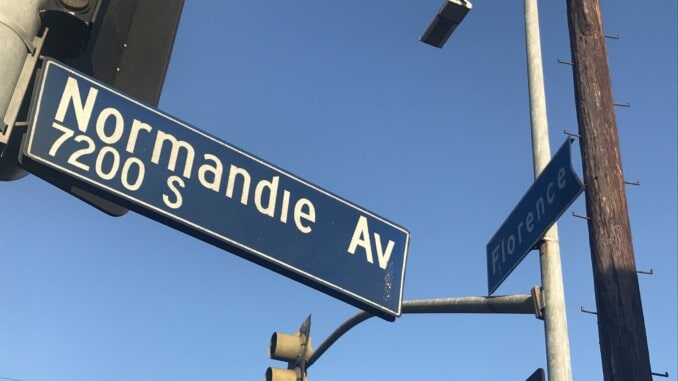
When I first saw the tape of Rodney King being beaten in the middle of the street on March 3, 1991, I was not horrified or surprised.
I was hopeful.
I believed that now, finally, the public would believe what Black and Latino activists had been saying: that police brutality is real and continues a long history of treating Black people like their lives do not matter, while simultaneously attempting to hide that reality in plain sight.
Activists had fought for years to get elected leaders to see and act on what was happening in Black communities across America. But officers who killed or brutalized Black people could say that they did it because they had been in fear for their life, whether or not the person was armed.
But then, 30 years ago as we watched that video, we were convinced that justice would finally be served, and the truth would be exposed to the world.
We were right to an extent.
People across the country felt outraged at what they saw on the tape, but that anger did not translate into large-scale change. Los Angeles amended its city charter to rein in the largely unchecked chief of police, who around that time suggested that Black people were dying from chokeholds at the hands of police at disproportionate rates because our neck veins were different from “normal people’s” neck veins. While these local actions were significant at the time, the reforms pretty much stopped there.
There had been a moment of understanding and an opportunity for change, but it passed.
In what could now be viewed as a rigged trial (due to changed venue and a jury with no Black people on it), the jury didn’t convict any of the four police officers involved in the assault. After that verdict, I drove through the intersection of Florence and Normandie in South Los Angeles on my way to a meeting with other activists and saw our community begin to burn in anger and despair.
Black and Brown people in this country have now endured 30 years of police brutality and violence since Rodney King was beaten.
On May 25, 2020, the world witnessed yet another video, this time of the slow killing of George Floyd. Tens of thousands took to the streets demanding change, not only in Minneapolis but in nearly every major U.S. city and in cities around the world.
Thirty years later, I stand hopeful yet again. There is a systemic problem with policing in the United States. By enacting transformative reform on a national level, we have a chance to address it.
Though named in his honor, Congress must not pass the George Floyd Justice in Policing Act to honor one man — but to honor all the unarmed people who have been brutalized or killed by police since his death and the many more who were brutalized or killed prior.
Last year I introduced this bill to act on these long overdue reforms. I developed it carefully in consultation with many stakeholders, including some police officials. The bill would introduce common sense reforms such as: requiring police officer accreditation; promulgating best practices; maintaining a registry of officers dismissed for excessive use of force; providing grants for communities to reenvision public safety; and banning the chokeholds and no-knock warrants in federal drug cases, which have been at the root of recent high-profile tragedies.
The House passed the bill last year, but it never got a vote in the Senate. The 117th Congress will take up the bill again this week with the opportunity to set us on a path towards finally addressing the issue of police brutality in a transformative way.
This is a moment of understanding and an opportunity for change yet again and we cannot let it pass.
When the police officers were acquitted at their trial for the beating of Rodney King, I felt hopeless and defeated. It felt like his life did not matter. That’s the feeling we will continue to have until we act. We cannot afford to wait another 30 years.
Next week, Derek Chauvin will stand trial for second-degree murder and second-degree manslaughter in the death of George Floyd.
At some point, our nation needs to make a decision about how many more instances of police brutality do we need to witness before we do something about it.
Rep. Karen Bass, D-Calif., represents Culver City and parts of Lost Angeles in the United States House of Representatives and is the former chair of the Congressional Black Caucus.


Be the first to comment